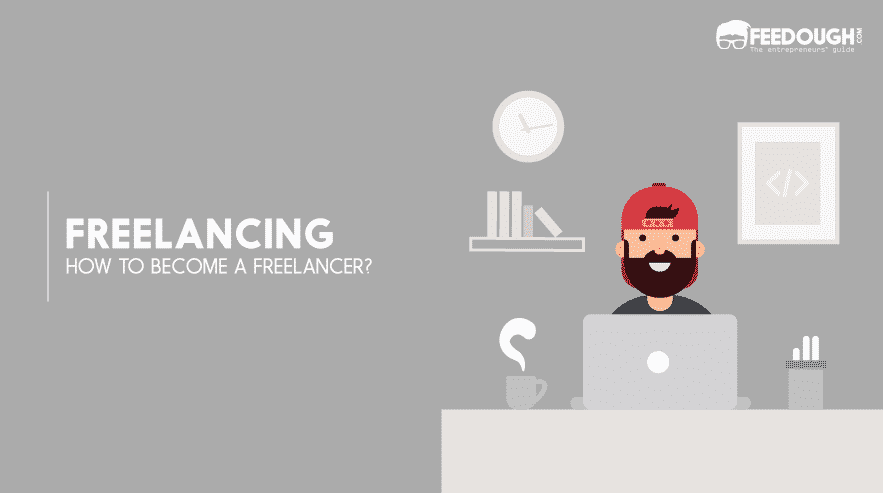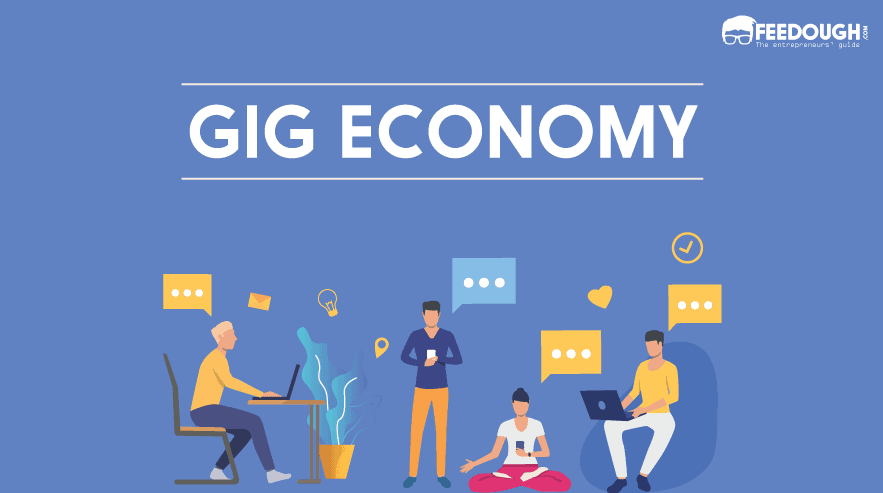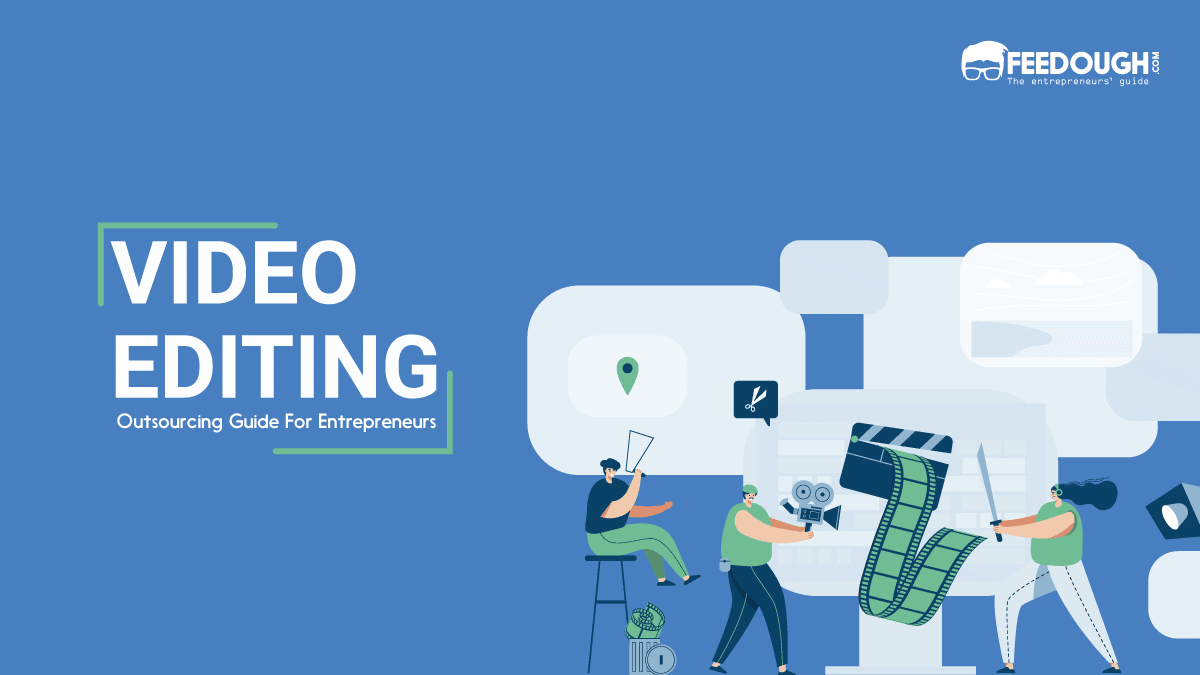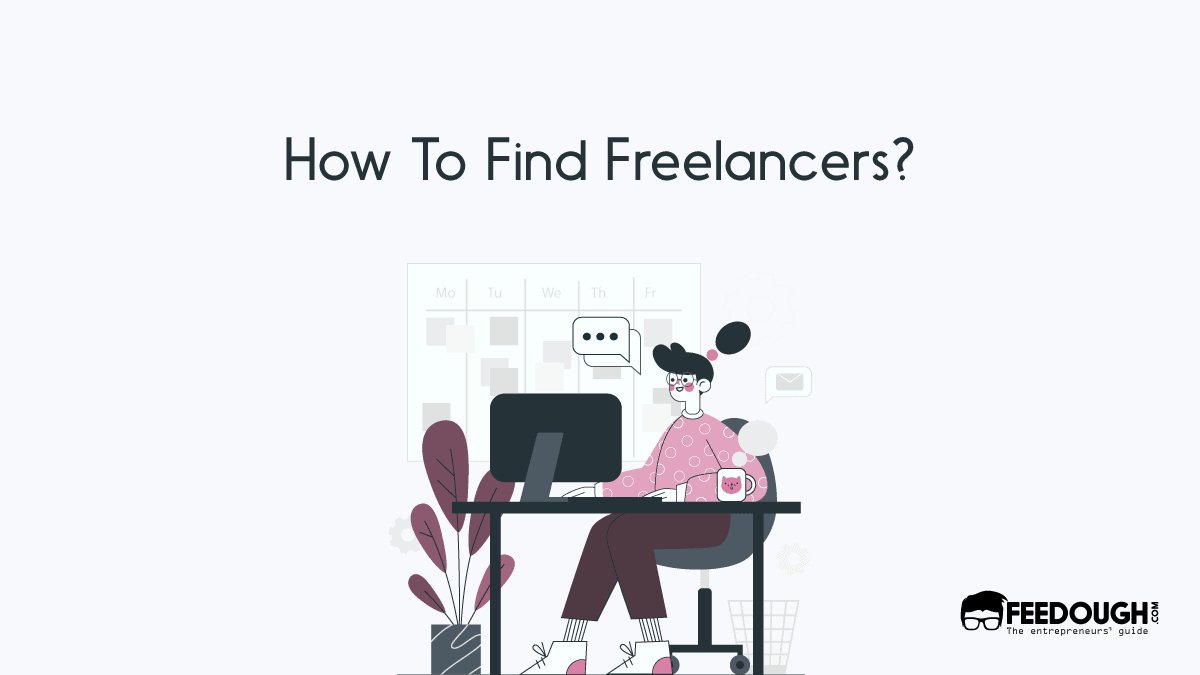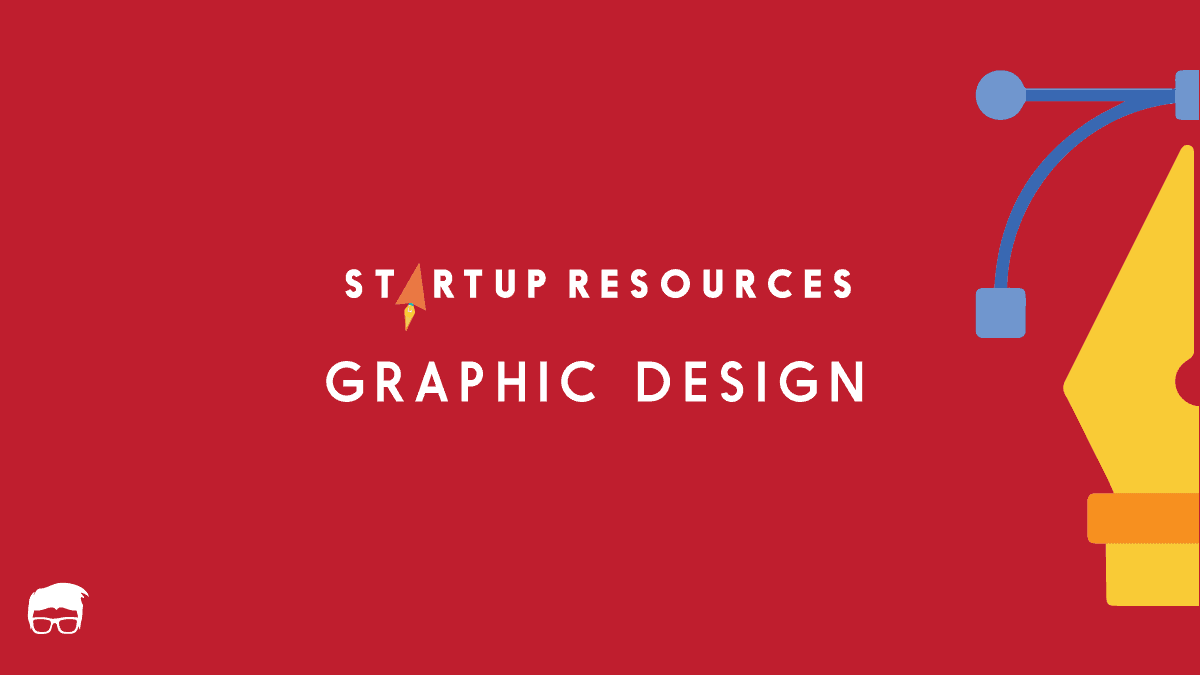The phrase ‘I am a freelancer’ gets thrown about a lot nowadays when someone is asked about what he does for a living. It could be a friend, colleague, or even your family member who left his regular 9 to 5 job to become a freelancer.
Many reasons contribute to this sudden shift in the mentality of people’s perception about jobs per se causing them to shift to freelancing.
But why do they do that?
Can freelancers sustain for long without a job?
What exactly do these “freelancers” do?
And how do freelancers make money?
Here’s a comprehensive guide to answer all your questions.
What Is Freelancing?
Freelancing is a contract-based profession where instead of being recruited in an organisation, the person uses his skills and experience to provide services to a number of clients.
In simple terms, freelancing is when you use your skills, education, and experience to work with multiple clients and take on various assignments without committing to a single employer. The number of assignments or tasks that you can take just boils down to your ability to deliver on them as asked from them.
Freelancing usually involves jobs (called gigs) that allow you to work-from-home situations. But don’t associate freelancing as the same as having a work-from-home job.
- Freelancing doesn’t always mean that you’ll work from home. You might have to work at your client’s office too depending upon the type of work and the client’s requirements.
- A work from home job involves a contract between you and a single employer who gives you a salary while freelancing doesn’t.
It is just that many of the jobs that freelancers perform can be delivered over the Internet without their presence at the company or clients place.
Who Is A Freelancer?
A freelancer or freelance worker is a self-employed person who earns money by providing services to multiple clients. These services relate to the person’s skills and are not necessarily provided to just businesses.
Freelancers either use third-party platforms like Fiverr, 99designs, etc. to get business or use their network to get more business and provide services to their clients directly.
But is it a good choice for a career? Can you sustain a lavish life while freelancing? How do you start with freelancing jobs?
Well, when 11 percent of the working adult population in the United States is working primarily as full-time freelancers, there must be something good about this industry.
Freelancing As A Career
The rise of freelancers has resulted in the development of a new concept – the gig economy. In the gig economy, a person, instead of working for a single employer full-time and getting a fixed salary in return, works for multiple clients at his own terms and at a price he thinks his work deserves.
Freelancing is an enticing profession. It takes care of almost all the problems of a usual service-class human. According to Upwork, Americans work an average of 47 hours per week. Freelancers work an average of 11 hours less per week than full-time employed workers. That adds up to about 550 hours per year or 23 whole days.
Full-time traditional workers spend nearly an additional full month each year behind the keyboard (or wherever they work).
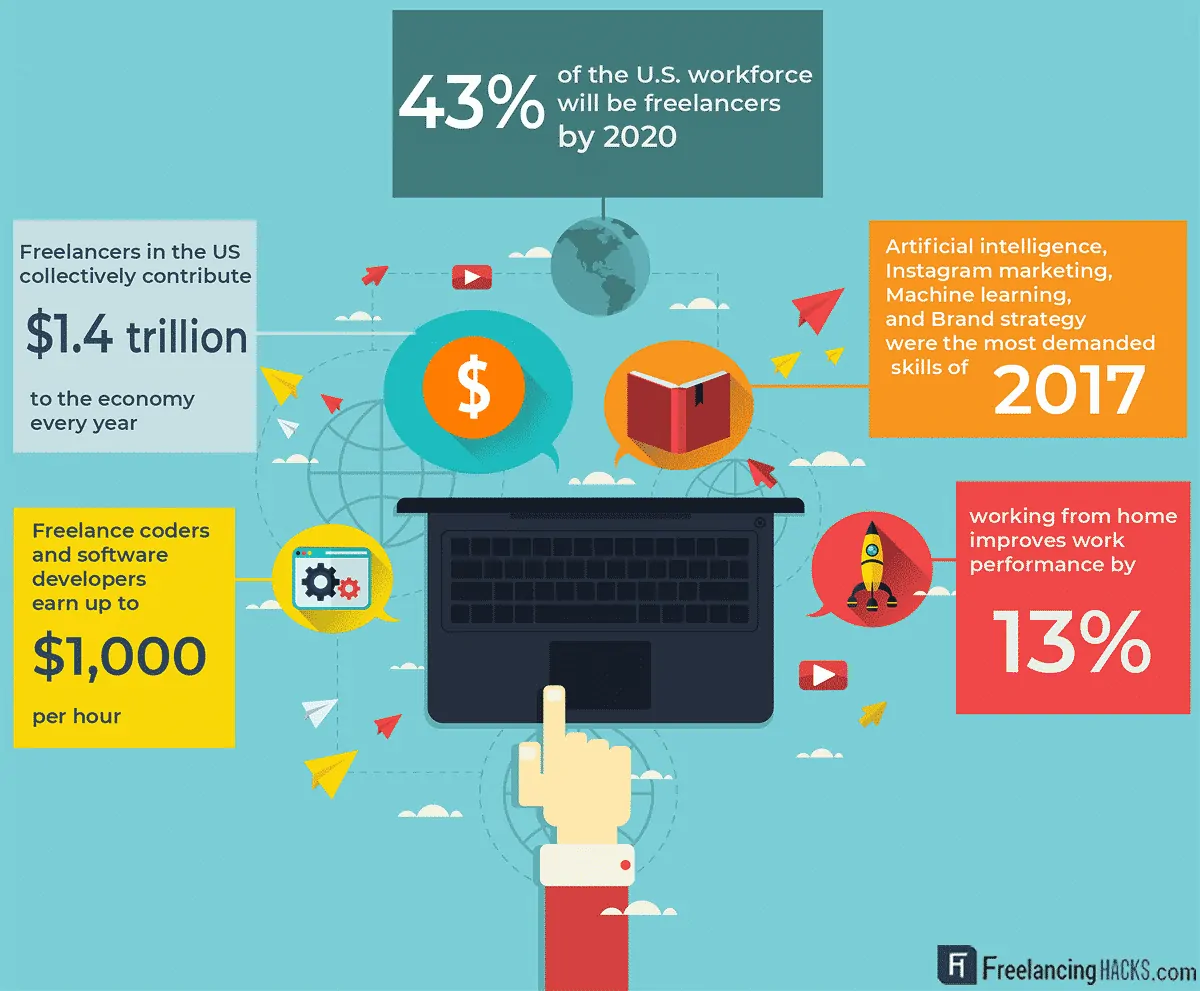
Here’s the annual salary of freelancers in America from 2014 till 2018:
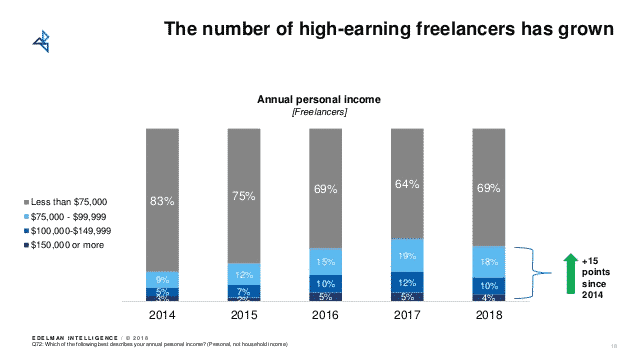
All this along with advantages like freedom to work from anywhere at a time of your choice, being your own boss, keeping all the profits, and a lower cost of operating surely attracts a lot of people to take freelancing as careers.
But not many ends up pursuing it full time.
Why, you ask?
Well, the answer is basically embedded in our human psyche.
It is deeply rooted in our minds to look for a guarantee. A regular job provides us with a guarantee of a profession that pays at the specified time. You get a routine to follow. And this job also provides with guaranteed perks such as insurance, retirement benefits, provident fund, increments and salary hikes for performing well.
When you opt for freelancing, you lose the guarantee of any of this. There’s no surety that you’ll get recurring clients. No surety that you’ll be able to sustain this lifestyle till retirement, and even no guarantee that your income will ever increase.
Moreover, you get to handle your tax deductions, insurance, and other finances yourself.
There are also other cons to freelancing such as –
- Work-life balance: If you don’t know how to separate personal life from work, freelancing becomes tougher than a regular nine to five job.
- No benefits: Freelancers are in charge of their own holidays, sick days, vacations and must be good financial and time-management planners.
- Difficult Clients: You may find some clients who are extremely difficult to manage. They may fail in giving the right instructions and information for completing the job or may be inaccessible to clear any doubts. This can be frustrating and might result in wasting your time.
There are always pros and cons to every profession and it’s up to you to balance it properly for a healthy footing. If you think freelancing could be beneficial for you and the cons don’t matter much. Read on to find out how you can become a freelancer.
How To Become A Freelancer?
Becoming a freelancer is just as easy as ordering something over the Internet. You visit sites that offer freelance jobs and tasks and take them on. This is a wonderful way of starting out and getting your name out there.
Here are a few sites that you can try for freelancing jobs:
- Toptal: Toptal is a highly selective and exclusive platform for freelancers, known for its rigorous screening process to ensure that only the top 3% of applicants are accepted. However, you make the most money here if selected.
- Fiverr: the world’s largest marketplace to look for freelance jobs. Just create an account post what you can do, add few links and you’re done.
- 99Designs: A perfect place to find freelancing jobs if you’re a designer.
- Upwork: Upwork is a more professional looking freelance marketplace where you’ll find more business clients.
- Freelancer.com: Freelancer.com is among the oldest freelance job marketplace which you can choose in your initial year when you have little or no freelance experience.
(We have a complete list of best outsourcing websites here if you want to check out more options)
Working on a few gigs from these sites helps in understanding how freelancing as a job goes along and helps you get the hang of it.
But before heading to these freelance websites, you need to set up a freelance brand for yourself. Follow these steps for the same –
- Decide what services you’ll offer.
- Determine your target market.
- Find the platforms (freelancing websites) you’ll be serving on. Choose a uniform username on all of them. It helps you build your brand identity.
- Decide your rates.
- Create an online portfolio on your niche-specific portfolio platforms; GitHub for developers, Behance for designers, etc. We also suggest you create a personal portfolio website to showcase your skills and talent.
- Market your services: market on social media, offer something for free or at a very less cost (helps in getting more traction), ask for referrals, and use email marketing.
We don’t suggest you leave your existing source of income and jump into freelancing per se. Try it as a part-time venture to see how it works out for you in the initial months.
It is entirely not necessary that you have to freelance full time. It is up to you to decide on whether you’d like to do it full time or keep your existing job and make a buck during your free time.
If you feel that you really like the way things are headed, it’s time to move onto the next step and make money freelancing.
Next Step
Once you feel that you can provide for yourself and work this way, the next course of action is to take on multiple assignments for multiple streams of revenue. This should include gigs that you got personally using the methods mentioned above as well as from the freelancing sites.
Another possibility is that you could make it a full-time gig. Freelancing full time also means you can create diverse forms of income. You can:
- Negotiate monthly retainers
- Negotiate commissions on sales projects
- Create referral systems to reward clients who send you new clients
- Market yourself directly: Here’s a helpful guide on marketing and creating perfect personal branding for yourself.
Take Care Of Your Finances
While in a job, most of the “money stuff” is taken care of by the company you work for. You get a regular paycheck without having to ask; your taxes are deducted automatically, and insurance is likely also taken care of by your employer.
Things are different when you’re on your own and you’d have to take care of the following by yourself:
- Getting your Paycheck: This is considered to be the trickiest part to manage, be it for the freelancing veterans or the newbies. Negotiating and communicating properly with your client to get them to pay for your service at the specified time proves to be much of a challenge. Take care of this properly and you are well set to do great in the freelance field. Check out this guide on negotiating like a pro to help you gain more tips and insight.
- Taxes: You need to handle your personal and professional tax complexities yourself.
- Insurance and retirement benefits: You need to look for the best insurance policy and plan for your retirement yourself.
What it all comes down to is that being a freelancer and working in the gig economy means taking a lot of responsibility for your own finances, whether that’s negotiating your pay, finding insurance, or paying taxes. But if you love the freedom, flexibility, and earning potential that comes with being independent, then freelancing is an ideal situation.
The Takeaway
Freelancing is equal parts positive and negative. You just have to decide if you’re willing to take the risk that almost always accompanies it. Freelancing means professional freedom, but it also means instability and the risk of failure. And that may not be what you need in your professional life. But if you risk your stability for something more in tune with your professional goals than a traditional job, you have the opportunity to build your name and reputation and reach your professional goals.
Go On, Tell Us What You Think!
Did we miss something? Come on! Tell us what you think of our guide on what is freelancing and who is a freelancer in the comments section

Started out to become a developer but felt at home in the home of startups. The journey started from a single novel. Been an entrepreneur since schooling days. Interested in coding, reading and movies.
